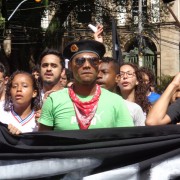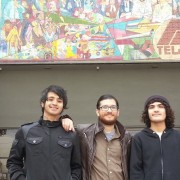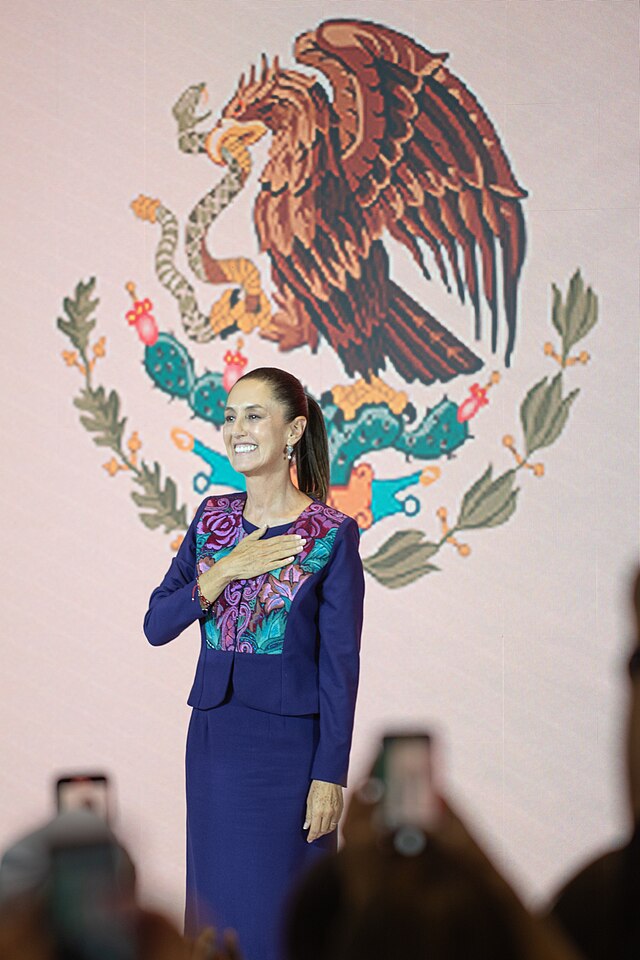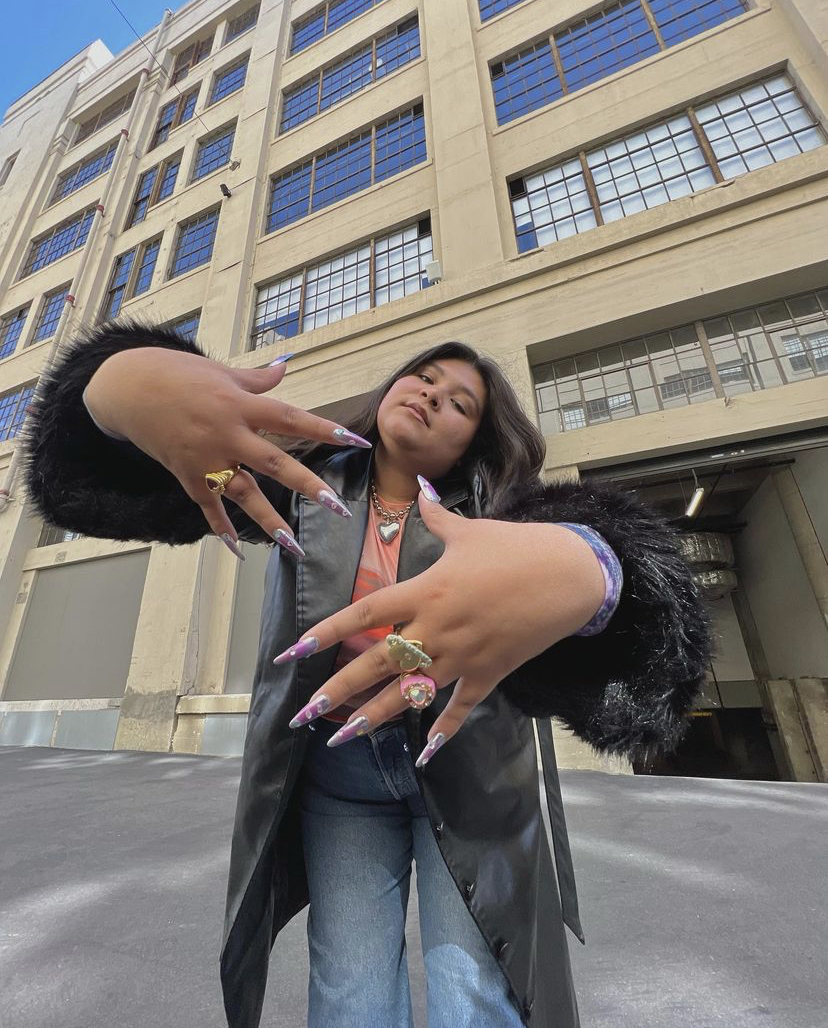Lawtinas

Visual Credit: Melissa Morales
Despite increased Latine student enrollment in higher education over the past few decades, Latine students are still drastically underrepresented in graduate school admissions. As the recent Supreme Court decision has revealed, access to higher education for racial minorities continues to be restricted despite long decades of educational justice advocacy. In the field of law more specifically, the American Bar Association revealed that only 5.8% of lawyers in the United States are Latine, despite making up 18.5% of the country’s population. Of this mere 5.8%, Latinas comprise only 2% of all lawyers in the U.S. While government data reveals that more Latinas have degrees in higher education compared to their male Latino counterparts, there is little discussion about the underrepresentation of Latinas in legal professions and how their ethnic identities intersect with their careers. In an effort to learn more about the unique experiences faced by Latinas in law and uncover what it means to be a “Lawtina,” I interviewed two first-generation Latinas: Xochitl Gutierrez, a counseling attorney at UCLA Student Legal Services, and Kimberly Quijada, a second-year law student at Southwestern Law School.
“Few and Far Between: The Reality of Latina Lawyers,” a 2009 study published by the Hispanic National Bar, surveyed more than 600 Latina attorneys and found that a “vast majority were not exposed to attorneys growing up [and] did not consider a career in the legal profession until college.” In an attempt to learn more about the pre-college experiences that led them to law school, I began both interviews by asking Xochitl and Kimberly about their family and community lives.
Xochitl grew up in the suburbs of Denver, Colorado to Mexican immigrant parents from the state of Chihuahua. When describing the community she grew up in, Xochitl shared that because her neighborhood had a very small Hispanic population, “not everyone could relate to [her] upbringing,” and she did not have many shared experiences with her peers. Xochitl remembers being placed in ESL (English as a Second Language) classes at the start of her elementary education and feeling separated from the rest of her peers until it was determined that she could advance to classes taught fully in English.
As the daughter of Mexican immigrant parents, Kimberly grew up in the city of Lynwood, located in southeast LA county. Kimberly described her community as under-resourced and underprivileged, and shared that it “need[s] a lot of work.” Kimberly’s K-12 experience in LUSD (Lynwood Unified School District) schools was impacted by a lack of resources to support her and her peers’ educational success, including accommodations for students with disabilities like herself. “[Lynwood] had a lot of hope, but it didn’t have a lot of resources,” Kimberly shared. Despite these challenges, Kimberly credits her community for who she is today: “I’m a product of my environment; everything that I am and what I do is based upon the fact that I grew up in Lynwood.”
The HNBA study on Latinas in law also found that parental support and the value parents placed on higher education were crucial in the respondents’ decisions to pursue careers in law. As the first in her family to navigate the college application process, Xochitl shared that her parents “were supportive in the ways that they could be supportive, but they didn’t know what the process was [like] applying to college.” Xochitl limited her applications to colleges she could afford and those that would potentially offer her scholarships. “I never really focused on where I actually wanted to go, I was focused on where I could afford to go […] so that dictated where I ended up applying and where I eventually chose to go.” Despite limited guidance on how to navigate the college application process, Xochitl was admitted to and enrolled at Metro State University in Denver on a full-ride scholarship.
Also a first-generation student, Kimberly shared that from a young age, she knew she wanted to attend college, but was unsure of how she would pay for her education. Like Xochitl, Kimberly chose to attend the college that offered her the best financial aid package: “money really paved the way for me because school is expensive, especially a UC,” she shared. In the fall of 2017, Kimberly started her first quarter at UCLA. While initially a political science major, Kimberly quickly discovered the major was not an ideal fit. Instead, she double-majored in English and Chicano studies with a minor in disability studies. She recalls always knowing she wanted to pursue a career in law, yet contemplated going into the field of education. Ultimately, she was able to combine both interests through an internship she completed during undergrad, leading her to the field of special education law. During her last year at UCLA, Kimberly made the life-changing decision to apply to law school. When asked about what influenced her decision to start law school right after undergrad, Kimberly shared: “I was already working in the field that I really loved and I already had that experience, so I knew I wasn’t going to necessarily regret it.”
In college, Xochitl recalls being exposed to far more racial and cultural diversity than she had ever seen before. Because Metro State was known as a “commuter college” at the time, Xochitl explained it was difficult to feel a connection to the campus as she felt it lacked a sense of community. She pursued her interest in criminal law, majoring in criminal justice and criminology with dreams of becoming a public defender in the future. After undergrad, Xochitl began working for the Colorado state courthouses as an administrative clerk. During her six years of work experience, she was able to connect with judges and lawyers from many different areas of law, which eventually motivated her to apply to law school.
With support from her parents and the legal professionals she worked with, Xochitl enrolled at and attended Creighton University in the state of Nebraska. After one year of law school, she transferred to the University of Denver where she completed her J.D. degree. When asked about her decision to transfer law schools, Xochitl shared that she believed the University of Denver’s competitive practical skills focus would be “more beneficial” to her career as a public defender. Xochitl noted that her law school had a highly competitive environment, but she found a supportive community among classmates that were public-interest oriented like her. “The people that I found were in the same track as me […] were just very welcoming,” she shared.
As a first-generation student, Kimberly described the law school application process as “daunting” and revealed that “everything felt so new […] like I was applying to undergrad all over again and I didn’t have the same support that I did when I was in high school.” Kimberly shared she heavily relied on connections made through her sorority’s alumni to help her navigate the law school application process. For this reason, Kimberly stressed the importance of building a community of supportive and knowledgeable individuals to help you throughout different aspects of the application process. Kimberly shared she eventually decided on enrolling at Southwestern Law School because of its part-time program, location, and financial aid opportunities. She was drawn by the diversity of the student body and believed that she could see herself belonging there. Like Xochitl, Kimberly describes her small cohort of law school classmates as competitive. Still, in an environment that “sets you up against each other,” Kimberly has been able to find support among her cohort; “we all try to help each other as much as the competition will allow.”
Now an attorney at UCLA Student Legal Services, Xochitl reflects on the professional experiences that led her to her current position. Throughout law school, Xochitl felt certain she wanted to become a public defender, but her internships in this area of law led her to realize this was not the route best suited for her. “I realized that it was too emotionally draining and it was not something that I could do long-term because I already felt burned out just from being an intern,” she revealed. After law school, Xochitl began a fellowship at Colorado Legal Services, where she focused on immigration cases. Still, she found immigration to be an emotionally-taxing field and began to question whether she would be able to work in public interest law. Soon after, Xochitl took and passed the California Bar exam and moved to San Diego to begin working for the Legal Aid Society of San Diego, where she focused on eviction defense.
We are now lucky to have Xochitl on campus as she began working as a counseling attorney at the UCLA Student Legal Services this past winter quarter. While she confessed that being an attorney is not what she had expected as a student, she describes her current position as “the perfect in between where [we’re] still helping people and […] giving them access to legal services and resources.”
The “law school cultural divide” was highlighted by the “Few and Far Between” study, which revealed that being one of the few or only Latinas in their law school led the women in the study to experience feelings of isolation and alienation. The study attributes imposter syndrome, or “feelings of self-doubt and the belief that they need to work harder than others to fit in and succeed,” to the lack of representation that Latinas experience in law school and later in their careers. When asked about their largest challenges in law school, both Xochitl and Kimberly mentioned that the stresses and pressures they have felt to succeed were brought along by imposter syndrome. Xochitl remembers feeling as though no one outside of her law school support system could relate to her struggles, especially as a first-generation student who “had to figure out how to tackle this new type of learning experience.” Kimberly describes imposter syndrome as “different” in law school; even with a seemingly diverse student body, “it’s a constant struggle of trying to remind myself that I belong,” she admitted.
When asked about what advice they would give their younger selves, both Xochitl and Kimberly recommended methods to manage imposter syndrome. Kimberly would like to remind her younger self to “know what [her] why is” in order to motivate herself through periods of imposter syndrome and stress. Xochitl wishes she would have started to work on her self-confidence from a younger age as she believes this would have helped her overcome feelings of imposter syndrome as she progressed through her educational and professional careers. Xochitl and Kimberly advise current students on the pre-law track to reach out to as many people in the legal profession as possible and ask as many questions as needed to learn more about pursuing a career in law. “Be annoying and reach out to everyone that you think is going to benefit you,” said Kimberly lightheartedly.
As support and resources for Latinas in higher education continue to expand, we can hope to see the representation of Latinas in law grow in the coming decades. For Xochitl, representation is most important, as “it’s really hard to believe that you can do it when no one that looks like you is doing it.” She hopes the legal profession continues to diversify in the future, “not just from a culture standpoint,” but in all aspects. Kimberly believes being a Latina in law is “to be a part of something bigger than yourself” and pave the way for those that will come after you. “It means that you’re trying to take up space, and make the space a better place for other [Latinas] to join, so that when they join they’re not fighting the same battle- that they’re not fighting to have an equal playing field […]”









Leave a Reply
Want to join the discussion?Feel free to contribute!